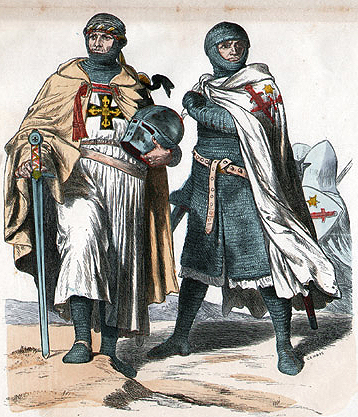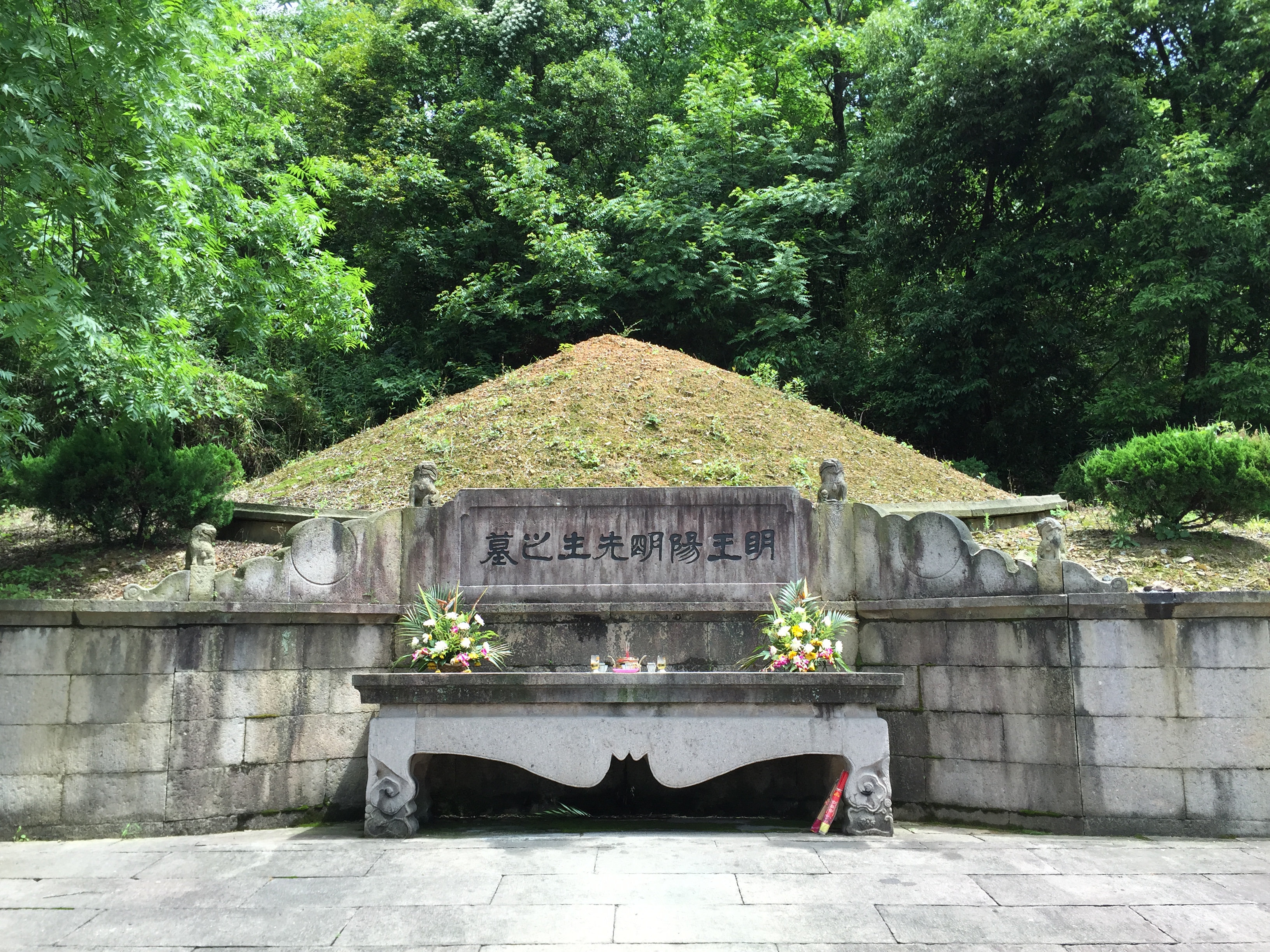|
жєЫиЛ•ж∞і
Zhan Ruoshui (, 1466вАУ1560) was a Chinese philosopher, educator and a Confucian scholar. Biography Zhan was born in Zengcheng, Guangdong. He was appointed the president of Nanjing Guozijian (еНЧдЇђеЬЛе≠РзЫ£, the Imperial Nanjing University) in 1524. He was later appointed the Ming dynasty Minister of Rites (з¶ЃйГ®, which mainly administers national ceremony, sacrifice, imperial examination, education, diplomacy, etc.), Minister of Personnel (), and then Minister of War () at Nanjing. As a scholar, Zhan is famous for mind theory (a branch of philosophy that deals with the nature of the mind and its relation to the body and the external world). He was also a famous educator. During his life, he founded or jointly founded more than 40 Shuyuan (жЫЄйЩҐ, Confucian academies). Zhan was a lifelong friend of the philosopher, general, and administrator Wang Yangming. They shared an appreciation of Lu Xiangshan idealism (xinxue), Daoism, and Buddhism Buddhism, also known as ... [...More Info...] [...Related Items...] OR: [Wikipedia] [Google] [Baidu] |
Zengcheng
Zengcheng District ( alternately romanized as Tsengshing) is one of 11 urban districts of the prefecture-level city of Guangzhou, the capital of Guangdong Province, China. History was established under the Qin following their conquest of the area, formerly held by the Baiyue tribes. Under the Ming, the northern area of the county was separated to form Longmen County, administered from Huizhou. The county was promoted to city status in 1993. In 2006, a western section of Zengcheng was severed to form Guangzhou's Luogang District, which was renamed Huangpu in 2014. On 12 February of the same year, Zengcheng was annexed to Guangzhou as a district. A riot of migrant workers occurred in Zengcheng in 2011. Climate Zengcheng's mild climate, fertile land, annual average temperature of 22.02 degrees and average yearly rainfall of make it suitable for tropical and subtropical crop growth. The district is noted for production of the lychee. Administrative divisions There are ... [...More Info...] [...Related Items...] OR: [Wikipedia] [Google] [Baidu] |
Daoism
Taoism or Daoism (, ) is a diverse philosophical and religious tradition indigenous to China, emphasizing harmony with the Tao ( zh, p=dào, w=tao4). With a range of meaning in Chinese philosophy, translations of Tao include 'way', 'road', 'path', or 'technique', generally understood in the Taoist sense as an enigmatic process of transformation ultimately underlying reality. Taoist thought has informed the development of various practices within the Taoist tradition and beyond, including forms of meditation, astrology, qigong, feng shui, and internal alchemy. A common goal of Taoist practice is self-cultivation, a deeper appreciation of the Tao, and more harmonious existence. Taoist ethics vary, but generally emphasize such virtues as '' effortless action'', ''naturalness'', ''simplicity'', and the three treasures of compassion, frugality, and humility. The core of Taoist thought crystallized during the early Warring States period (), during which the epigrammatic ... [...More Info...] [...Related Items...] OR: [Wikipedia] [Google] [Baidu] |
Politicians From Guangzhou
A politician is a person who participates in policy-making processes, usually holding an elective position in government. Politicians represent the people, make decisions, and influence the formulation of public policy. The roles or duties that politicians must perform vary depending on the level of government they serve, whether local, national, or international. The ideological orientation that politicians adopt often stems from their previous experience, education, beliefs, the political parties they belong to, or public opinion. Politicians sometimes face many challenges and mistakes that may affect their credibility and ability to persuade. These mistakes include political corruption resulting from their misuse and exploitation of power to achieve their interests, which requires them to prioritize the public interest and develop long-term strategies. Challenges include how to keep up with the development of social media and confronting biased media, in addition to discrimi ... [...More Info...] [...Related Items...] OR: [Wikipedia] [Google] [Baidu] |
1560 Deaths
Year 1560 (Roman numerals, MDLX) was a leap year starting on Monday of the Julian calendar. Events January–March * January 7 – In the Kingdom of Scotland, Kingdom of France, French troops commanded by Henri Cleutin and Captain Corbeyran de Cardaillac Sarlabous sail across the Firth of Forth from Leith, which they are occupying, and fight with the Lords of the Congregation at Pettycur Bay near Kinghorn. * February 27 – Treaty of Berwick (1560), Treaty of Berwick: Terms are agreed upon with the Lords of the Congregation in Scotland, for forces of the Kingdom of England to enter Scotland, to expel French troops defending the Regency of Mary of Guise. * March 7 – A Spanish-led expedition, commanded by Juan de la Cerda, 4th Duke of Medinaceli, overruns the Tunisian island of Djerba. * March 17 – Leaders of the Amboise conspiracy, including Godefroy de Barry, seigneur de La Renaudie, make an unsuccessful attempt to storm the ch√Ґteau of Amboise, ... [...More Info...] [...Related Items...] OR: [Wikipedia] [Google] [Baidu] |
1466 Births
Year 1466 ( MCDLXVI) was a common year starting on Wednesday of the Julian calendar. Events * The Kingdom of Georgia collapses into anarchy, and fragments into rival states of Kartli, Kakheti, Imereti, Samtskhe-Saatabago and a number of principalities; this breakup is finalised in 1490, when Constantine II of Georgia has to recognize his rival monarchies. * The Mentelin Bible, the first printed German language Bible, is produced. * Louis XI of France introduces silk weaving to Lyon. * The first known shop specialising in eyeglasses opens in Strasbourg. * The second largest bell of Saint Peter's Church, Fritzlar, in Hesse, is cast by Meister Goswin aus Fritzlar. Births * February 11 – Elizabeth of York, queen of Henry VII of England (d. 1503) * May – Elisabeth of Hesse-Marburg, German landgravine (d. 1523) * May 22 – Marino Sanuto the Younger, Italian historian (d. 1536) * June 18 – Ottaviano Petrucci, Italian music printer (d. 1539) * July 5 & ... [...More Info...] [...Related Items...] OR: [Wikipedia] [Google] [Baidu] |
Educators From Guangdong
A teacher, also called a schoolteacher or formally an educator, is a person who helps students to acquire knowledge, competence, or virtue, via the practice of teaching. ''Informally'' the role of teacher may be taken on by anyone (e.g. when showing a colleague how to perform a specific task). In some countries, teaching young people of school age may be carried out in an informal setting, such as within the family (homeschooling), rather than in a formal setting such as a school or college. Some other professions may involve a significant amount of teaching (e.g. youth worker, pastor). In most countries, ''formal'' teaching of students is usually carried out by paid professional teachers. This article focuses on those who are ''employed'', as their main role, to teach others in a ''formal'' education context, such as at a school or other place of ''initial'' formal education or training. Duties and functions A teacher's role may vary among cultures. Teachers may provi ... [...More Info...] [...Related Items...] OR: [Wikipedia] [Google] [Baidu] |
Chinese Confucianists
Chinese may refer to: * Something related to China * Chinese people, people identified with China, through nationality, citizenship, and/or ethnicity **Han Chinese, East Asian ethnic group native to China. **''Zhonghua minzu'', the supra-ethnic concept of the Chinese nation ** List of ethnic groups in China, people of various ethnicities in contemporary China ** Ethnic minorities in China, people of non-Han Chinese ethnicities in modern China ** Ethnic groups in Chinese history, people of various ethnicities in historical China ** Nationals of the People's Republic of China ** Nationals of the Republic of China ** Overseas Chinese, Chinese people residing outside the territories of mainland China, Hong Kong, Macau, and Taiwan * Sinitic languages, the major branch of the Sino-Tibetan language family ** Chinese language, a group of related languages spoken predominantly in China, sharing a written script (Chinese characters in traditional and simplified forms) *** Standard Chine ... [...More Info...] [...Related Items...] OR: [Wikipedia] [Google] [Baidu] |
16th-century Chinese Philosophers
The 16th century began with the Julian year 1501 (represented by the Roman numerals MDI) and ended with either the Julian or the Gregorian year 1600 (MDC), depending on the reckoning used (the Gregorian calendar introduced a lapse of 10 days in October 1582). The Renaissance in Italy and Europe saw the emergence of important artists, authors and scientists, and led to the foundation of important subjects which include accounting and political science. Copernicus proposed the heliocentric universe, which was met with strong resistance, and Tycho Brahe refuted the theory of celestial spheres through observational measurement of the 1572 appearance of a Milky Way supernova. These events directly challenged the long-held notion of an immutable universe supported by Ptolemy and Aristotle, and led to major revolutions in astronomy and science. Galileo Galilei became a champion of the new sciences, invented the first thermometer and made substantial contributions in the fields of phy ... [...More Info...] [...Related Items...] OR: [Wikipedia] [Google] [Baidu] |
Ming Dynasty Philosophers
The Ming dynasty, officially the Great Ming, was an imperial dynasty of China that ruled from 1368 to 1644, following the collapse of the Mongol-led Yuan dynasty. The Ming was the last imperial dynasty of China ruled by the Han people, the majority ethnic group in China. Although the primary capital of Beijing fell in 1644 to a rebellion led by Li Zicheng (who established the short-lived Shun dynasty), numerous rump regimes ruled by remnants of the Ming imperial family, collectively called the Southern Ming, survived until 1662. The Ming dynasty's founder, the Hongwu Emperor (1368вАУ1398), attempted to create a society of self-sufficient rural communities ordered in a rigid, immobile system that would guarantee and support a permanent class of soldiers for his dynasty: the empire's standing army exceeded one million troops and the navy's dockyards in Nanjing were the largest in the world. He also took great care breaking the power of the court eunuchs and unrelated magn ... [...More Info...] [...Related Items...] OR: [Wikipedia] [Google] [Baidu] |
Buddhism
Buddhism, also known as Buddhadharma and Dharmavinaya, is an Indian religion and List of philosophies, philosophical tradition based on Pre-sectarian Buddhism, teachings attributed to the Buddha, a wandering teacher who lived in the 6th or 5th century Before the Common Era, BCE. It is the Major religious groups, world's fourth-largest religion, with about 500 million followers, known as Buddhists, who comprise four percent of the global population. It arose in the eastern Gangetic plain as a movement in the 5th century BCE, and gradually spread throughout much of Asia. Buddhism has subsequently played a major role in Asian culture and spirituality, eventually spreading to Western world, the West in the 20th century. According to tradition, the Buddha instructed his followers in a path of bhavana, development which leads to Enlightenment in Buddhism, awakening and moksha, full liberation from ''DuбЄ•kha, dukkha'' (). He regarded this path as a Middle Way between extremes su ... [...More Info...] [...Related Items...] OR: [Wikipedia] [Google] [Baidu] |
Wang Yangming
Wang Shouren (, 26 October 1472 – 9 January 1529), courtesy name Bo'an (), art name Yangmingzi (), usually referred to as Wang Yangming (), was a Chinese statesman, general, and Neo-Confucian philosopher during the Ming dynasty. After Zhu Xi, he is commonly regarded as the most important Neo-Confucian thinker, for his interpretations of Confucianism that denied the rationalist dualism of the orthodox philosophy of Zhu Xi. Wang and Lu Xiangshan are regarded as the founders as the LuвАУWang school, or the School of the Mind. In China, Japan, and Western countries, he is known by his honorific name rather than his private name. Life and times Wang was born in Yuyao, Zhejiang Province, to a scholarly family with a tradition of bureaucratic service. His father, Wang Hua, was first (''Zhuangyuan'', зЛАеЕГ) in the Imperial Examination of 1481, and rose to become the vice-minister of the Ministry of Rites, but was later demoted and subsequently expelled from government ser ... [...More Info...] [...Related Items...] OR: [Wikipedia] [Google] [Baidu] |






